Jan. 15, 2023
Donna Jackson (at right, with Mark Douglass and Chris Plourde) started as a client at the Roosevelt Safe Spot Community. Now she has moved on to transitional housing and serves on the CSS Board of Directors.
We can always use more supplies! Check out our in-kind donation wishlist here.
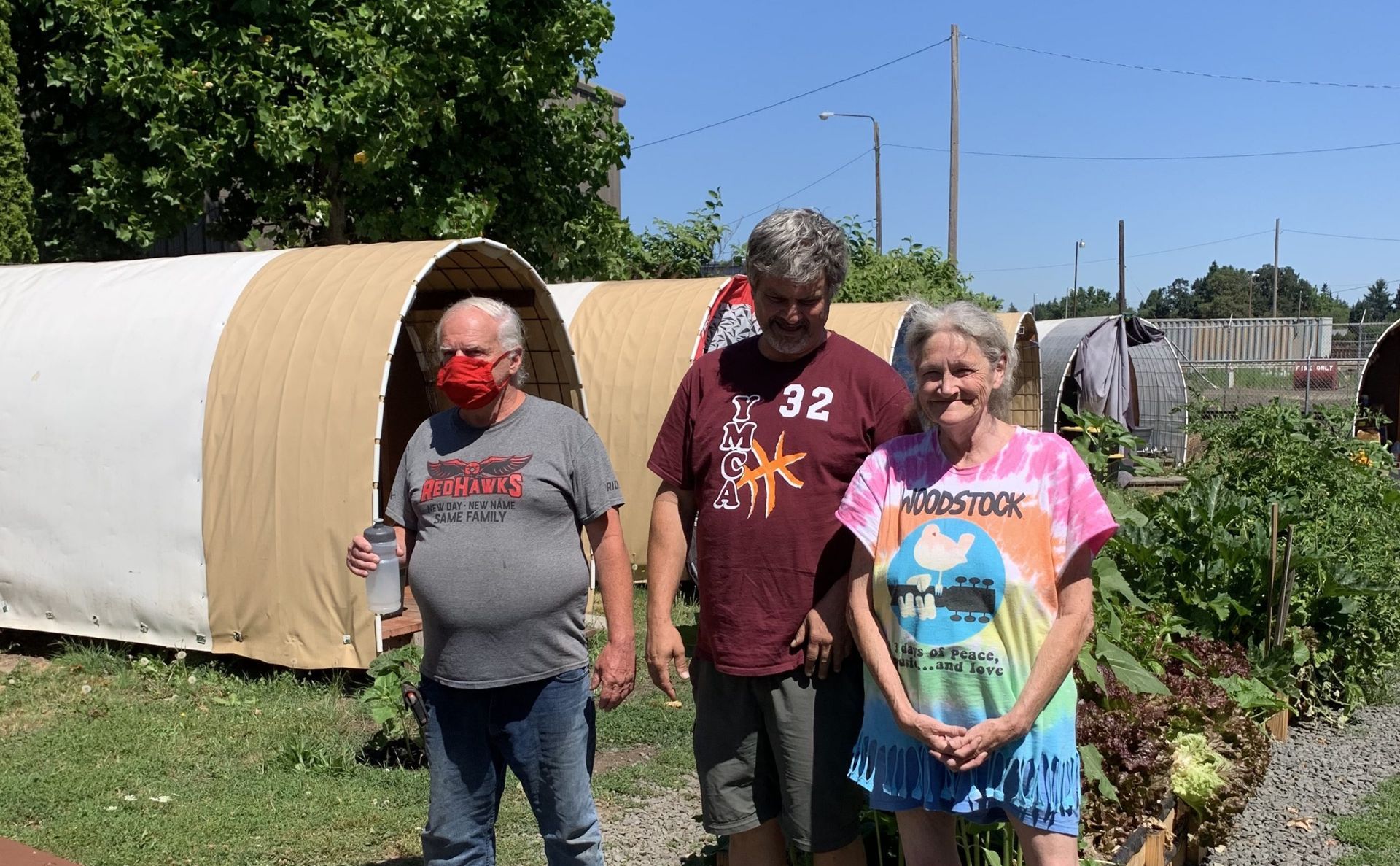
Jan. 15, 2023
Donna Jackson (at right, with Mark Douglass and Chris Plourde) started as a client at the Roosevelt Safe Spot Community. Now she has moved on to transitional housing and serves on the CSS Board of Directors.
In the winter of 2013/14, Donna Jackson and her 26-year-old daughter Melissa got kicked out of an apartment where they were staying. Their last source of income, donating plasma, had dried up because of health problems and other issues. They couldn’t get into the Mission because they had been smoking pot and couldn’t pass the drug test. They tried Opportunity Village (OVE) but were told the application process to get in took two weeks.
“We had nowhere to go and we were desperate,” Donna says. “I was bawling, sitting on the side of the street. If that camp hadn’t been there . . .”
“That camp” was the Roosevelt Safe Spot, the first CSS transitional community that had been started a few months earlier and was just around the corner from OVE. At that time, people looking for shelter could fill out applications at the camp itself. Donna and her daughter filled out an application and headed toward Springfield, where a friend had said they could crash for one night. But they got a call from CSS before they got there telling them they could move in to Roosevelt the next day.
The Roosevelt camp had just a few Huts then. Most residents slept in tents on platforms to keep them off the ground. Donna and Melissa moved into a shared tent. They had both come out of abusive relationships and were newly clean and sober former hard drug addicts.
Donna appreciated how quickly they got into a place where they had some stability and security. “It was a great place to be rather than being underneath the bridge,” she says. But Donna couldn’t avoid dwelling on some negative feelings: “I’m 60 years old,” she said in an interview in 2014, “and I’m in a tent camp. I was very disappointed with myself, very unhappy with how my life turned out. It took me a month, month and a half, to finally realize that this is OK.”
Nine years later, as CSS celebrates its 10th anniversary, Donna is living independently and paying rent at the CSS-owned Shields House. She became the volunteer coordinator at the Roosevelt Camp, mentored many of the members who came into and successfully left that community, provided office support at the CSS headquarters office, and helped establish the Shields House as a “next step” in the transition from the streets to stable housing—and in the fall of 2022, she was named to the CSS Board of Directors.
After their initial stint at Roosevelt, Donna and Melissa got a trailer and parked it in Alton Baker Park as part of the City of Eugene Parking Program. But after about five months, they couldn’t find anywhere to park it legally, so Donna got permission to move it into the Roosevelt Camp. Melissa went to the Mission.
The camp was going through a restructuring of volunteer leadership, adding a number of volunteer positions for residents, including responsibilities for maintenance, kitchen, and transportation, as well as a “vibes checker.” The man who had served as camp coordinator no longer wanted to do that, so he nominated Donna. She wasn’t sure about taking on that responsibility at first, but “I ended up really liking it,” she says—so much that she did it for almost four years, gradually developing a stable and steadying leadership group, some of whom also moved into the Shields House. At that time, volunteer leaders were allowed to stay in the camp beyond the usual 10-month limit.
During those years, the camp went through a physical transformation. “We went from mostly tent platforms to all Huts with storage containers on the back of each,” Donna says. “We got a new kitchen and a new community room—and we had it going on.”
The camp also had gone through a “vibes” transformation (though the position of “vibes checker” was eventually eliminated).
“We made it a community,” Donna says. “I think it had a lot to do with our [volunteer] staff: Chris [Plourde], Wes [Belisle], Mark [Douglass], Red [Stevens], and me—and all kinds of different people who were on the staff. We all put our hearts in it. We had dinners together at night. We celebrated holidays. We made sure we had Christmas decorations in a tree. That got other people to start doing things for each other. People started donating food stamps for meals together. We collected money for the generator so we could have our charging station. The work parties and camp meetings helped bring people together. A lot of people came away with really warm feelings from Roosevelt. I’m really proud that we were able to do that for so long.”
Being camp coordinator had its challenges: “Dealing with people who were on drugs or intoxicated from alcohol or people who tried to kill themselves or tried to cause chaos in the camp.” Donna says. “The only reason I dealt with them is because we had to. It took a little while to calm me down. Chris was a godsend. He helped me a lot to see things from a different point of view and to reevaluate my way of thinking.” She also credits CSS staff members Mona Bronson and Marie Laura Roehrich for providing support “anytime I needed somebody to talk to. They were at our disposal to make sure that we succeeded.”
And she saw frequent evidence of that success. “The biggest rewards were seeing grumpy people become nice and sociable and seeing so many of our clients find housing. It seemed like month after month we had people moving into their own places. Getting their own homes. And it was amazing to see somebody get their social security card or their ID or even a library card or get some bills paid off. The [CSS] office works so well with getting people’s needs taken care of.
“There’s just so many things CSS has done for so many people to help improve their lives. And I got to see so much of that.”
At both the camp and during her time volunteering at the office, she also saw evidence of the community support that is fundamental to CSS success in the form of donations of everything from batteries to Sunday lunches. “Just the outpouring of kindness from this community was amazing.”
After almost six years in the Roosevelt camp, Donna was also rewarded by being one of the first to move into Shields House.
“I feel like I’ve died and went to heaven,” Donna said shortly before moving in at the end of July 2020.
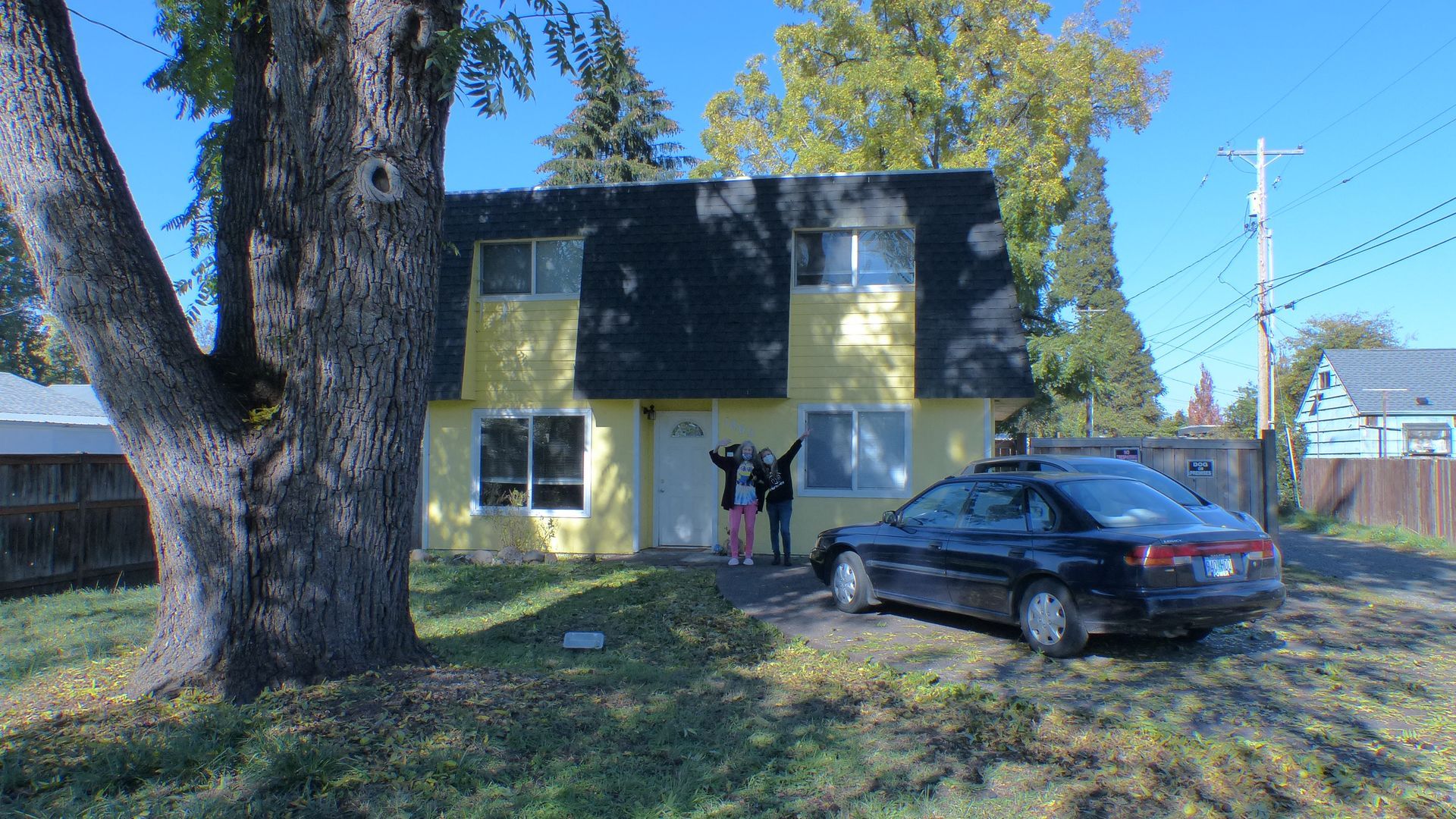
The house is in the same neighborhood as the CSS headquarters and Erik and Kristin Fay de Buhr, CSS co-founders, had been eying it for years as they thought about CSS providing housing for people who were ready to move on from the Safe Spots. Then, when they attended the funeral of their friend Ray Shields—a one-time resident of the Roosevelt Safe Spot, who had brought solar light and battery chargers to the camp using his genius-level tinkering skills—they learned that Ray had built that house for his family when he was a young man. When it came up for sale in early 2020, Erik and Kristin Fay were determined to buy it to launch CSS’s co-housing program.
Shields House tenants pay rent to cover the mortgage and to establish a rental history, the absence of which is a formidable obstacle for people trying to break into the rental housing market.
Chris, Wes, and Mark—all past members of the Roosevelt volunteer management team—moved in at the same time as Donna.
“This has been a rock star team in that camp for a long time,” Erik said at that time, “so to be able to provide the next step up when there was no other option for them, it feels like we’re really taking care of our people.”
They added a fifth roommate—Kevin Hanners, a former Expressway Safe Spot resident—a few months later. When Wes died in late summer 2022, Chris Teasdale, who had been in the Roosevelt camp for 10 months, moved in.
“It’s been amazing,” Donna says of her two-and-a-half years in the house. “I love my room. We got to paint our rooms the colors we wanted, so I have a room that is really pleasing to my eye. We’ve got a big backyard. It’s nice and fenced and private, so I get to sit back there and feed my raccoons and my squirrels and my birds.
“I know it’s a CSS house, but it feels like my home.”
The Shields House was considered a pilot project and Donna believes that under the right circumstances, CSS developing other similar housing would offer “a great transition” for others ready to move on from the Safe Spot Communities but stymied by shortages of affordable housing or other obstacles.
“I have to say, you’ve got to have responsible people, ones that really want to succeed, who know that it’s important to pay the rent and not get the power turned off and report damages and have somebody come fix anything that breaks in the house.”
Donna will have some say over whether CSS pursues more co-housing opportunities and other strategic and operational policies because she was named to the CSS Board of Directors a few months ago, the first former client to sit on the board.
She believes her experience will be valuable to the board. “I think it makes a big difference. I think it’s a lot more valuable than someone who maybe just knew a little bit about CSS until they got on the board but never had experienced homelessness or knew anything about the trials that people go through sometimes every minute when they are homeless.”
She recognizes the challenges arising from the recent transitions CSS is going through with the expansion of the number of Safe Spot Communities and changes in leadership. “I think we’re going through some struggling times. They had to grow really fast and it takes a lot to manage that stuff.”
She hasn’t been around the Safe Spot Communities much in recent years but she wonders if they have “the same family feeling we had at Roosevelt.” She’s learning about the new system of staff support for the camps and is assured that “everybody wants all this to succeed. Maybe this new system is what’s needed with the growth we’ve experienced.” But she hopes as a board member that she can share lessons from her days at Roosevelt to contribute to the success of the new system. “I’m old school and I wish everything would be like Roosevelt, but I know that’s not possible.”
Donna says it’s hard for her to imagine CSS without Erik in a leadership role. “He put his whole being into this program.”
But she believes CSS is strong enough to overcome these transitional challenges. “This is a good enough organization and there’s enough people involved who seem to care about what happens. And it’s a great cause. It’s a great thing for the community. Where would all these people be if they weren’t in our Huts? They have a place to lay their head where they can lock their door, a kitchen where they can get some food, and a toilet where they don’t have to wonder where they’re going to go to the bathroom.
“I’m glad I’m on the board so I can help oversee [this transition] and keep an eye on things and make sure I add my input as far as future changes or ways of doing things. We did have a system that worked.”
In a 2017 interview, Donna said, “I owe Erik and Fay everything. They saved my life. Being here has been so good for me—really good!
She feels those sentiments even more strongly now. “That’s still very true today. As far as saying they saved my life—in the past I knew I was a good person but I kept messing up all the time. I grew into the person I am today because of that camp and the responsibilities I grew to accept. And because of the challenges I faced, the person that I became is somebody I’m very proud of. I grew into somebody that I love and I care about. And I know now that I’m a good person and I have things to contribute. I didn’t believe any of that stuff about myself before.”
“I had to be a good example and it made a lot of difference in a lot of people’s lives to see that it can be done—that people really did care and that we meant what we said and that help was available.
“I don’t know where I’d be if we hadn’t found the sanctuary that we found there and the people there who actually cared about us.”
To stay connected to CSS, subscribe to our quarterly newsletter. If you are a member of the media who is seeking info, contact
community@cssoregon.org.
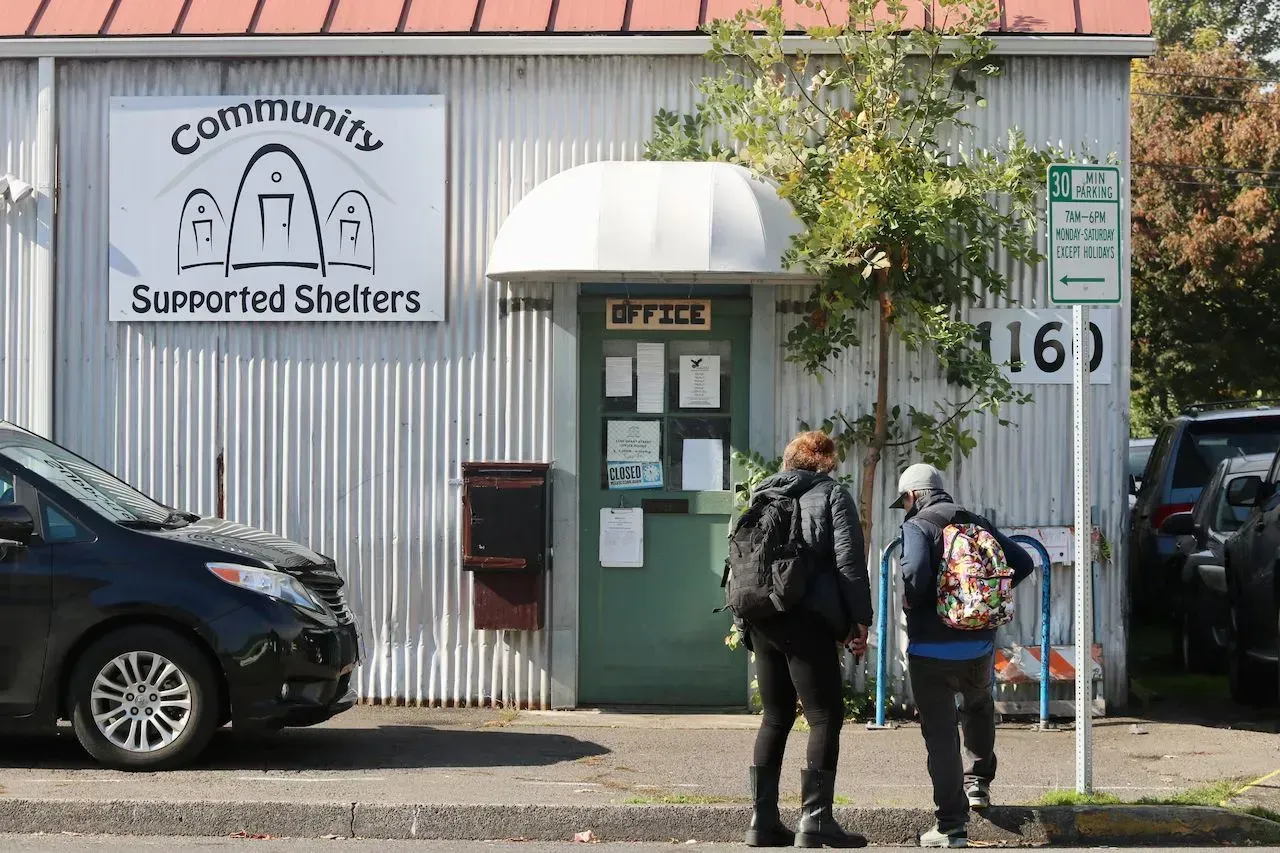
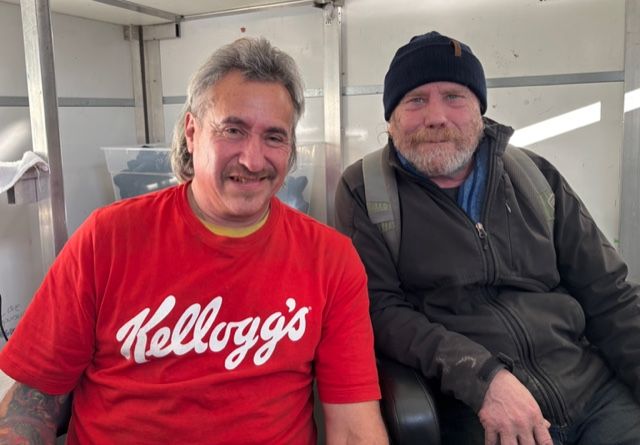
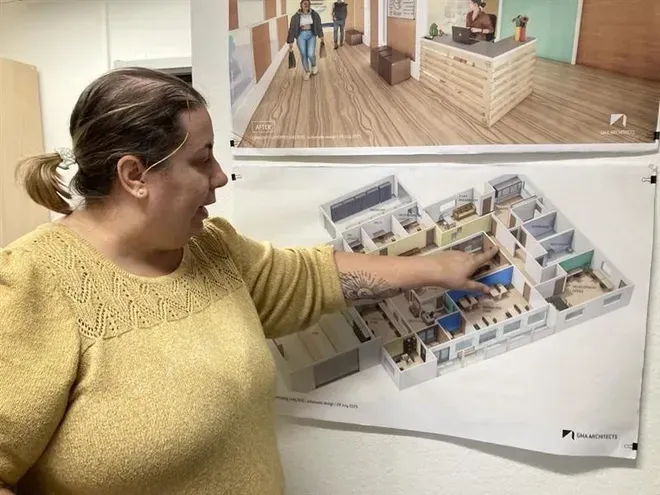
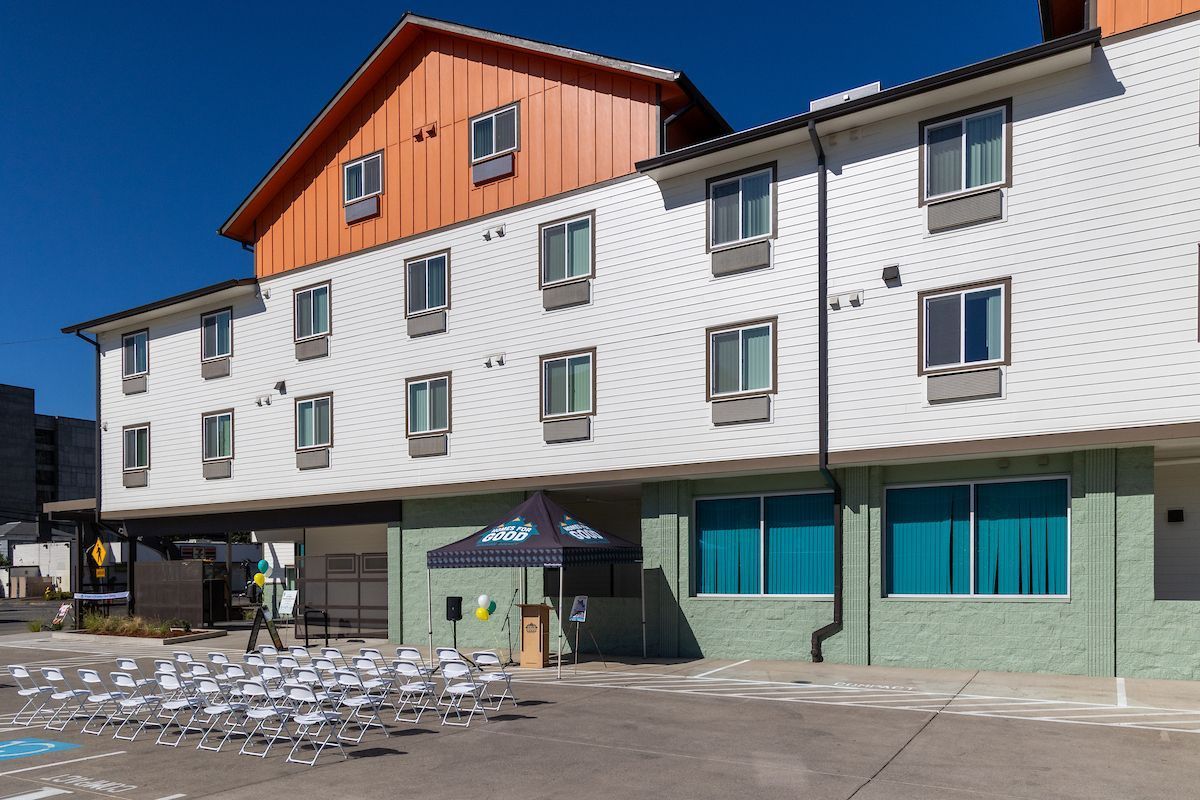
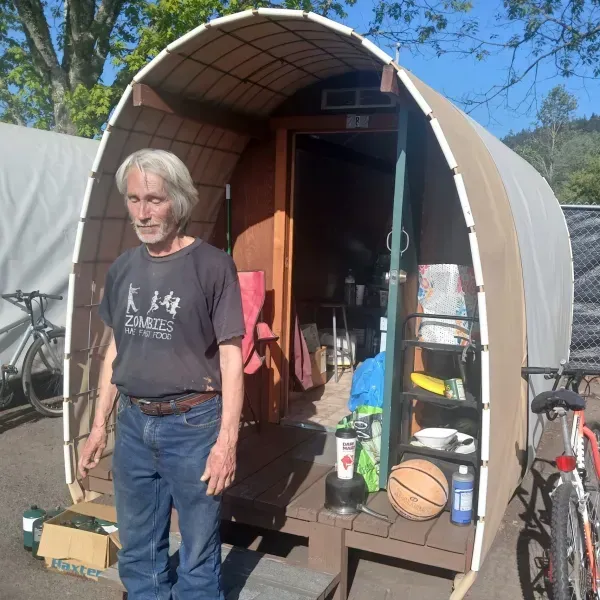
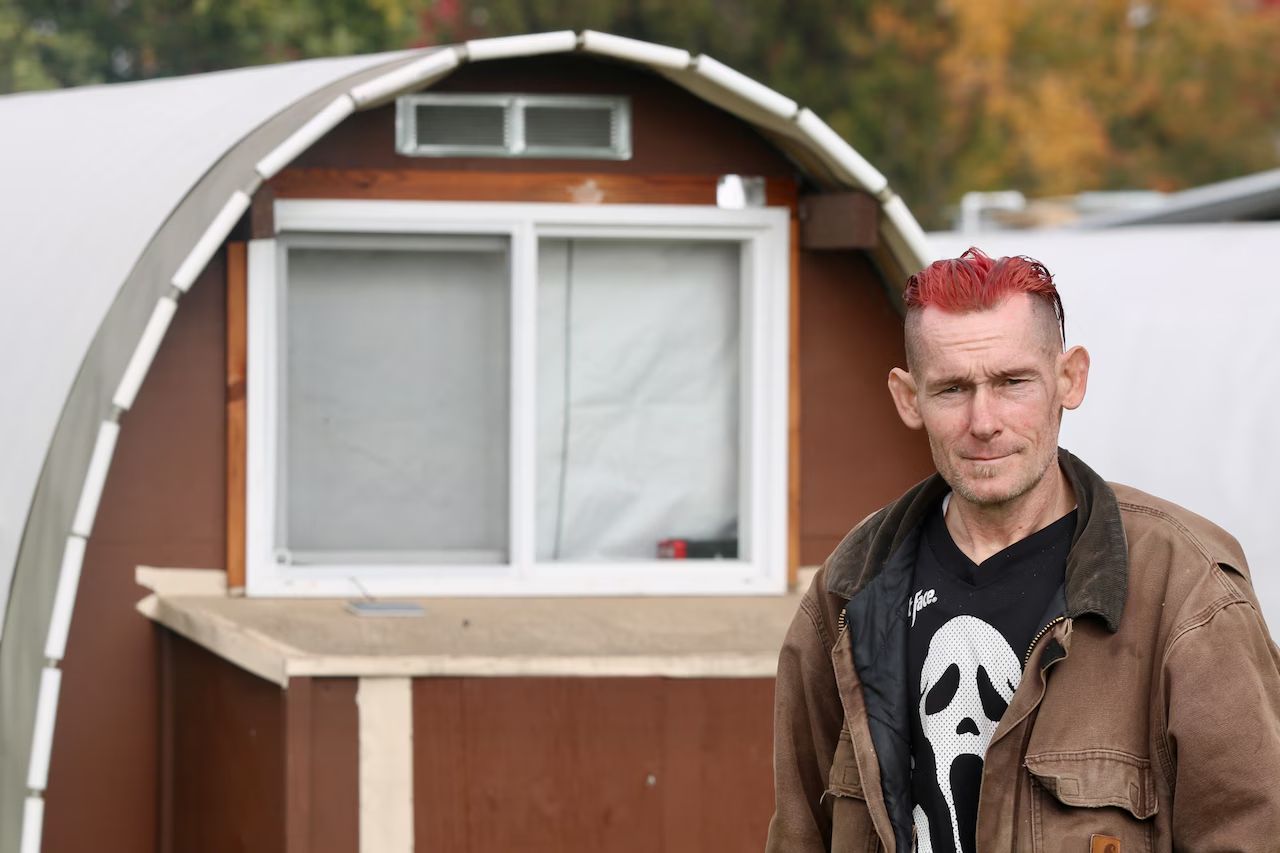
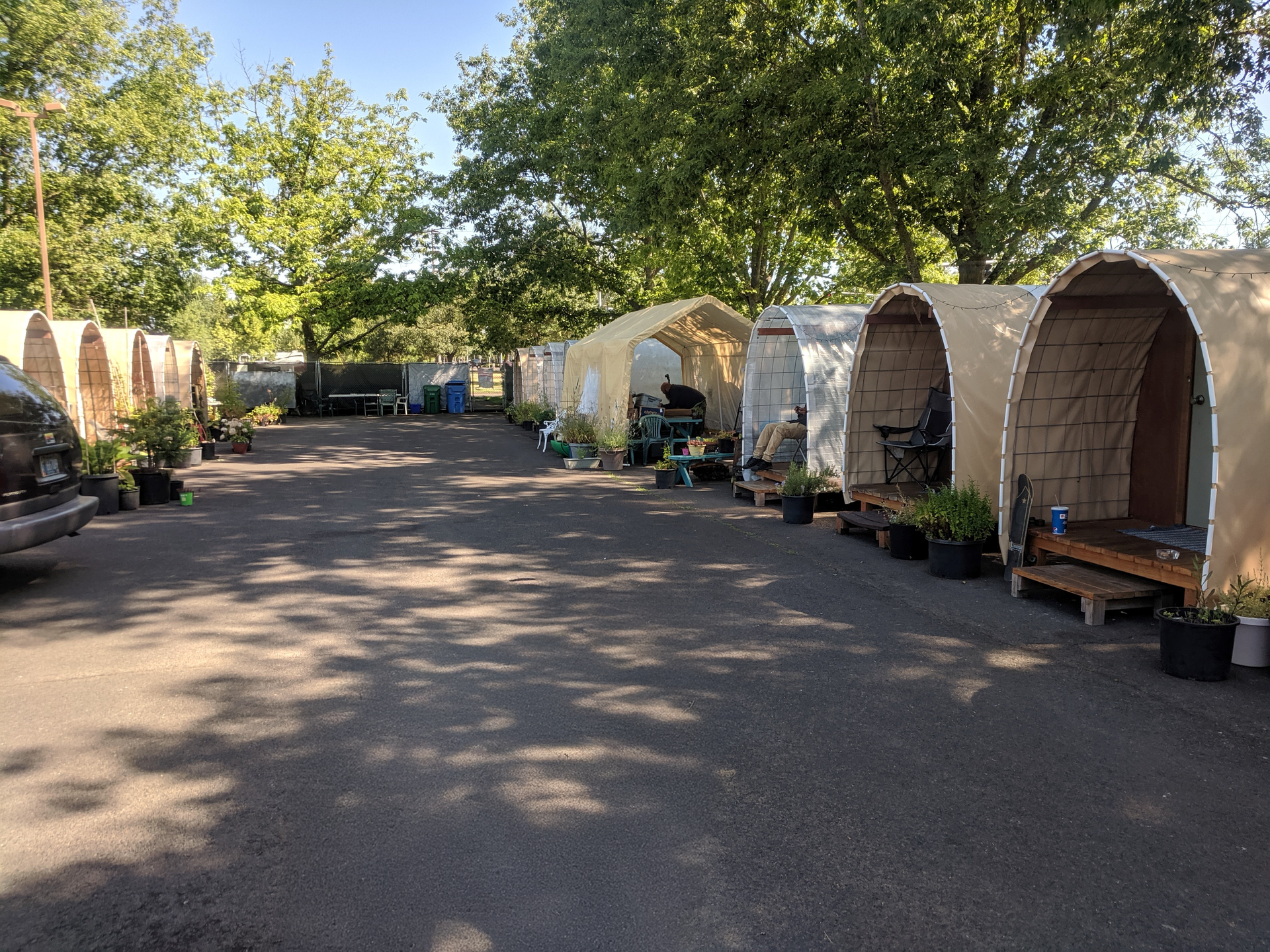


1160 Grant Street
Eugene, OR 97402
Public Office Hours:
Tue-Fri, 1-4 p.m.
To stay connected to CSS and learn about upcoming events, subscribe to our quarterly newsletter.
All Rights Reserved | Community Supported Shelters | This site is powered by Neon One